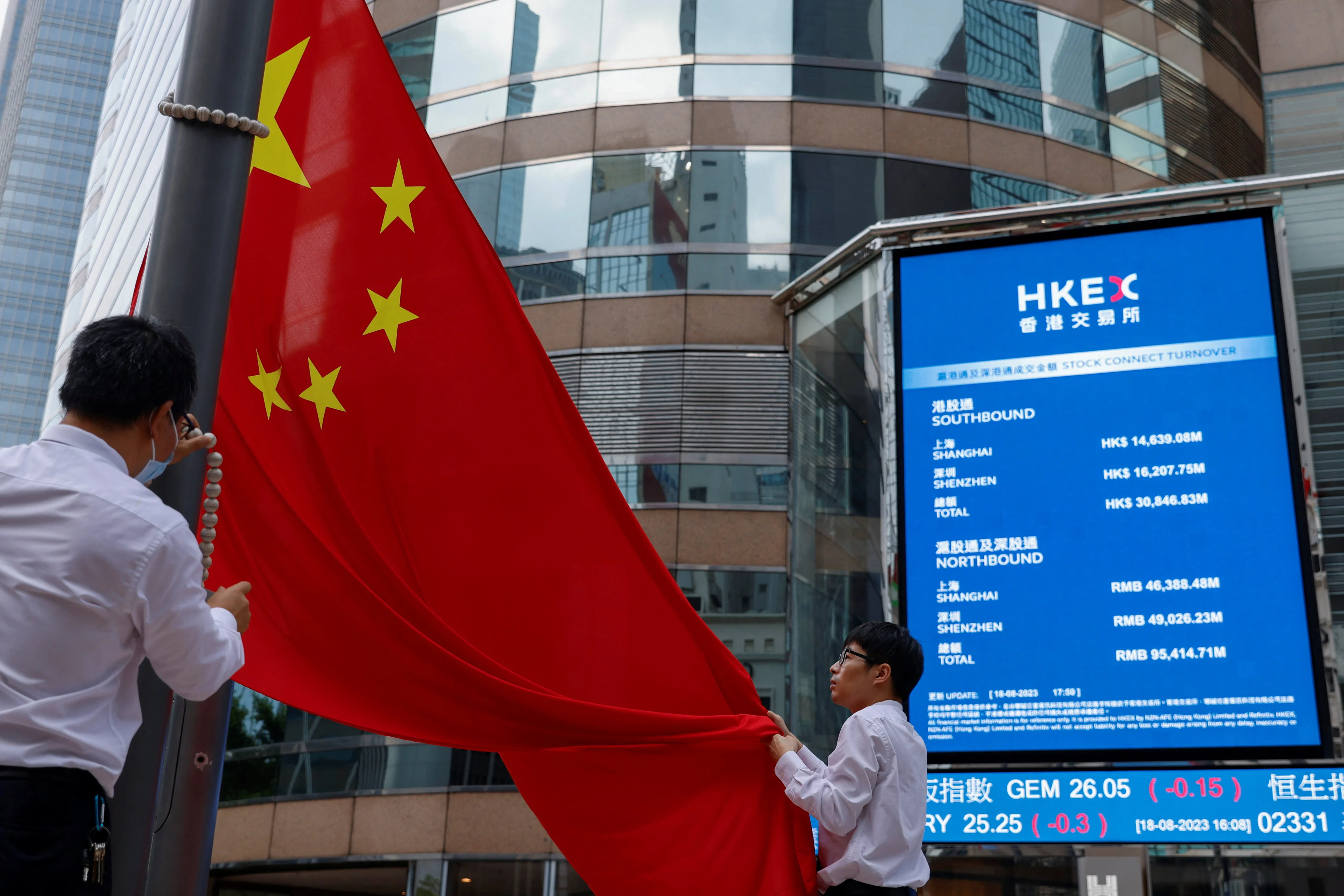Chinese Stocks Rally Despite Sluggish GDP Growth
Chinese Stocks Rally Despite Sluggish GDP Growth
By
Junia Wells
Last updated:
October 20, 2025
First Published:
November 30, 2025

Photo: South China Morning Post
Markets Open Strong Across Asia
Asian markets kicked off the week on a positive note as investors brushed off weaker-than-expected economic growth data from China. Despite the country’s gross domestic product (GDP) showing signs of slower expansion, investor sentiment remained resilient, pushing Chinese and regional stocks higher on Monday.
China’s GDP grew 4.8% year-over-year during the July-to-September quarter, aligning with market forecasts from Reuters. While the number signals a modest slowdown compared to earlier in the year, investors took comfort in the government’s decision to maintain the one-year loan prime rate at 3%, reinforcing expectations that policymakers are focused on stability over stimulus-driven expansion.
The Hang Seng Index in Hong Kong surged more than 2%, while the CSI 300 Index — a benchmark for mainland Chinese stocks — rose 0.74%, reflecting renewed investor appetite for Chinese equities even amid concerns about sluggish domestic demand and a property sector still under pressure.
Japan’s Market Surge on Political Developments
In Japan, markets reacted with enthusiasm after reports surfaced that the Liberal Democratic Party and the Japan Restoration Party had reached a tentative agreement to form a coalition government. The move sparked confidence in policy continuity and reform momentum, driving the Nikkei 225 up nearly 3%, pushing it above the 49,000 mark for the first time.
The Topix index also gained around 2%, signaling strong investor confidence across sectors. Political stability, combined with a favorable earnings outlook and a weaker yen, continues to boost Japanese equities, which have been among Asia’s top-performing markets in recent months.
South Korea and Australia Follow the Upward Trend
Elsewhere in the region, South Korea’s Kospi added 0.36%, extending its rally after reaching record highs for three consecutive days last week. The Kosdaq, dominated by smaller-cap and tech-focused firms, climbed 1.13%, reflecting strong investor optimism in the country’s innovation-driven economy.
In contrast, Australia’s S&P/ASX 200 edged down 0.1% at the open, with investors showing caution ahead of key inflation data expected later in the week. Analysts believe that concerns over potential rate adjustments by the Reserve Bank of Australia may be keeping traders on the sidelines for now.
Global Cues and Wall Street’s Positive Close
The upbeat mood in Asia followed a strong finish on Wall Street last Friday. The Dow Jones Industrial Average climbed 238.37 points, or 0.52%, to close at 46,190.61, while the S&P 500 advanced 0.53% to 6,664.01. The Nasdaq Composite also gained 0.52%, ending at 22,679.98.
U.S. investors appeared to be digesting a shift in tone from Washington regarding trade relations with China, as well as easing concerns over regional banking sector instability that had triggered a sell-off earlier in the week. The recovery on Wall Street provided a tailwind for Asian equities as traders anticipated improved global trade dynamics.
China’s Balancing Act: Growth vs. Stability
While China’s latest GDP figure of 4.8% reflects a moderation in growth, analysts point out that it remains consistent with Beijing’s full-year target of around 5%. The government’s decision to hold lending rates steady shows a cautious approach aimed at supporting long-term economic recovery while avoiding excess leverage in the financial system.
Recent data indicates that industrial production and exports have shown mild improvement, but consumer spending and real estate investments continue to drag on momentum. Economists expect that additional targeted measures — such as tax breaks for small businesses and infrastructure incentives — may be introduced in the coming months to maintain steady growth.
Outlook for Investors
Despite concerns over China’s economic slowdown, markets appear to be pricing in optimism over stabilization and potential fiscal easing later in the year. The rebound in Asian stocks signals that investors remain confident in the region’s medium-term growth story, especially as inflation pressures ease globally and central banks adopt more measured monetary policies.
In the short term, analysts predict that China’s market performance will depend on domestic consumption trends, while Japan’s rally could continue if the new coalition government sustains policy momentum. For now, Asian markets are starting the week with renewed energy — suggesting that investors are willing to look past temporary economic softness in favor of long-term opportunity.
Popular articles
Subscribe to unlock premium content
Gilded Holidays in Fashion

How HBO Max Used the Power of Limited Series to Redefine Streaming Competition and Challenge Netflix’s Binge Culture

How Stranger Things Revolutionized Netflix and Redefined Streaming Entertainment

Gilded Holidays in Fashion

How HBO Max Used the Power of Limited Series to Redefine Streaming Competition and Challenge Netflix’s Binge Culture

Gilded Holidays in Fashion









